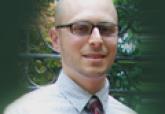BRONFENBRENER: Where do you think dermatology is going?
BOLOGNIA: I don’t know exactly, and I don’t think anyone knows exactly. I think we need to work hard to maintain our unique body of knowledge and to remind others of this accomplishment. I am often struck in Grand Rounds that no other specialty would have a fighting chance at generating a differential diagnosis or appropriate treatment strategy for the patients presented there. I can’t answer whether if in 10 years most dermatologists will be employees at hospitals or will still have some degree of autonomy, and I think that is unsettling.
BRONFENBRENER: What’s on the horizon for you?
BOLOGNIA: I’m working on the fourth edition of Dermatology, slated to come out in 2017. Dermatology Essentials was just published and is meant to provide a quick overview if you’re scheduled to give a talk and want a 5-minute refresher or if you’re in between patients and would like to be reminded of additional entities in the differential diagnosis. These books are accessible via the Inkling app, so you can have the entire book correctly formatted on your phone or tablet. I was recently trying to provide a more specific site for a biopsy on the ear and just couldn’t remember the correct term, but a quick search and I had the entire external ear anatomy schematic up on my phone.
BRONFENBRENER: Any favorite quotations?
BOLOGNIA: I like this one by Benjamin Franklin: “Well done is better than well said.” I judge people on their actions; not on what they say they’re going to do but rather what they’ve done.
My interview provided a glimpse into the cooperative effort required to synthesize the vast quantity of information into a well-written textbook. Dr. Bolognia is passionate about the field, finds great pleasure in unraveling mysterious patients, and goes to great lengths to make teaching points. As impressive as her accomplishments are, I found myself most inspired by her intellectual curiosity for dermatology, a character trait that successful dermatology residents should also embody. I feel fortunate to have had the opportunity to interview her, and I hope that the resident community can also benefit from the advice she has shared.
